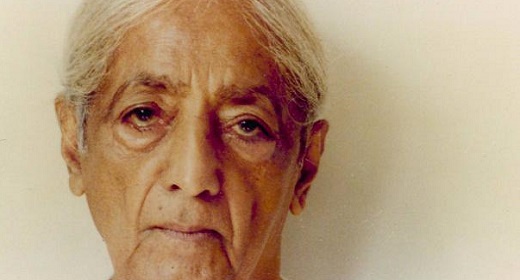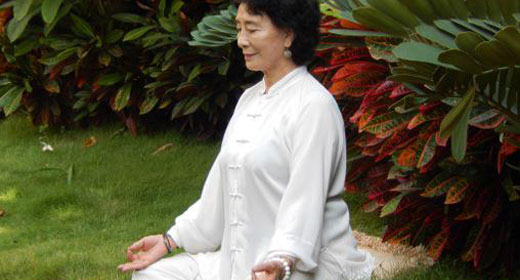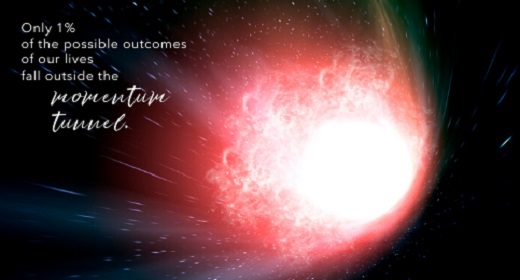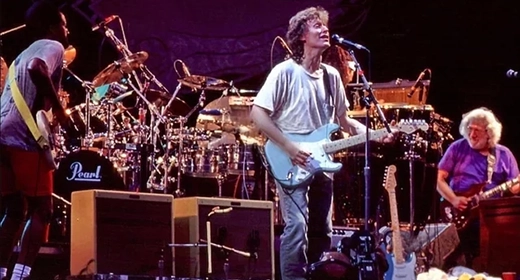Awaken: Sir Jiddu krishnamurti, I want to first thank you for spending this time with me today. I know that our awakened readers will treasure your words.
 Your approach to spiritual teachings is unconventional, in that it is not possible to characterize your approach. Actually, you distinctly keep yourself and your teachings unshackled from labels, altogether. But you have written so extensively on thought as the starting point for our journey. Why is the discourse on thought so important?
Your approach to spiritual teachings is unconventional, in that it is not possible to characterize your approach. Actually, you distinctly keep yourself and your teachings unshackled from labels, altogether. But you have written so extensively on thought as the starting point for our journey. Why is the discourse on thought so important?
Krishnamurti: Thought is the common factor of all mankind. There is no eastern thought, or western thought; there is only the common capacity to think, whether one is utterly poor or more sophisticated, living in an affluent society… Whether a surgeon, a carpenter, a laborer in the field, or a great poet, thought is the common factor of all of us. We do not seem to realize that thought is the common factor that binds us all. You think according to your capacity, to your energy, your experience and knowledge; another thinks differently according to his experience and conditioning. We are all caught in this network of thought. This is a fact, indisputable and actual.
Awaken: True. But I’d like to better understand why it is so important to understand this faculty of thinking…
Krishnamurti: Prejudice has something in common with ideals, beliefs and faiths. We must be able to think together; but our prejudices, our ideals and so on, limit the capacity and the energy required to think, to observe and examine together, so as to discover for ourselves what lies behind all the confusion, misery, terror, destruction and tremendous violence in the world.
Awaken: Ahh… so that is the idea… that we have to be able to think together?
Krishnamurti: Thinking together is tremendously important because we have to face a world that is rapidly disintegrating, degenerating, a world in which there is no sense of morality, where nothing is sacred, where no one respects another. And… we must be able to observe together—to understand, not only the mirror outward facts that are taking place, but also the depth and the significance of all this, we must be able to observe together—not you observing one way and the speaker another, but together observe the same thing. That observation, that examination, is prevented if we cling to our prejudices, to our particular experiences and our particular comprehension.
Awaken: It sounds like you are saying that in order to shape a better world, we have to find a way to get beyond our cultural prejudices and step onto the same page, with our thinking, somehow…
Krishnamurti: We have to enter into the depths of it, into what lies behind it. We have to inquire why it is that after all these millions of years of evolution… man, you and the whole world, have become so violent, callous, destructive, enduring wars and the atomic bomb. The technological world is evolving more and more; perhaps that may be one of the factors causing man to become like this. So please let us think together, not according to my way or your way, but simply using the capacity to think.
Awaken: What does it take to get beyond those cultural prejudices that have led to all of the violence, not to mention the other crucial problems of today, like global warming, the pandemic, and more recently, the Russian aggressions toward Ukraine?
Krishnamurti: We have been ‘programmed’ biologically, physically and also ‘programmed’ mentally, intellectually. We must be aware of having been programmed, like a computer. Computers are programmed by experts to produce the results that they want. And these computers will outstrip men in thought.
Awaken: What you are saying is so in line with the debates as of late, with regard to artificial intelligence, and so forth…
Krishnamurti: These computers can gather experience, and from that experience, learn, accumulate knowledge, according to their program… they are going to outstrip all our thinking and accuracy and with greater speed. Of course, they cannot compose as Beethoven, or as Keats, but they will outstrip our thinking.
Awaken: It brings us around to the question of what we are… So, the computer will be able to perform better than we can, in many areas, but will not be able to compose. Because we are creative beings. Perhaps that is what we need to get in touch with? Could it be that this faculty is what will save us? That creative spark within us? To find new solutions to anything, we have to think creatively. But, it sounds like you are saying that our programming has rendered us a bit feeble… and only with great effort can we get past that?
Krishnamurti: What is man? He has been programmed to be Catholic, Protestant, to be Italian or British and so on. For centuries, he has been programmed—to believe, to have faith, to follow certain rituals, certain dogmas; programmed to be nationalistic and to go to war. So his brain has become as a computer, but not so capable because his thought is limited, whereas the computer, although being also limited, is able to think much more rapidly than the human being and can outstrip him.
These are facts, this is what actually is going on. And what becomes of man? Then what is man? If the robots and the computer can do almost all that the human being can do, then what is the future society of man? When cars can be built by the robot and the computer—probably much better—then what is going to become of men as a social entity?
These and many other problems are facing us. You cannot anymore think as Christians, Buddhists, Hindus and Muslims. We are facing a tremendous crisis; a crisis which the politicians can never solve because they are programmed to think in a particular way—nor can the scientists understand or solve the crisis; nor yet the business world, the world of money.
Awaken: So, we’ve reached a moment of truth, especially with the multifaceted array of crises facing us today—and we have only referenced but a few—how do we pivot ourselves around?
Krishnamurti: The turning point, the perceptive decision, the challenge, is not in politics, in religion, in the scientific world, it is in our consciousness. One has to understand the consciousness of mankind, which has brought us to this point. One has to be very serious about this matter because we are really facing something very dangerous in the world—where this is the proliferation of the atomic bomb which some lunatic will turn on. We all must be aware of this.
One has to be very, very serious, not flippant, not casually concerned, to understand this behavior and how human thought has brought us all to this point. We must be able to penetrate very carefully, hesitantly, with deep observation, to understand together what is happening both out there and inwardly.
Awaken: So, as always, we have to turn the pointer inwardly before we can ever hope to achieve any kind of palpable and lasting change outwardly?
Krishnamurti: The inward psychological activity always overcomes the outer, however many regulations, sanctions, decisions you may have outwardly, all these are shattered by our psychological desires, fears and anxieties, by the longing for security.
Awaken: So, we have to understand our own fears because this is what ultimately shapes our thought patterns?
Krishnamurti: Unless we understand that, whatever outward semblance of order we may have, inward disorder always overcomes that which is outwardly conforming, disciplined, regularised. There may be carefully constructed institutions—political, religious, economic—but whatever the construction of these may be, unless our inward consciousness is in total order, inward disorder will always overcome the outer. We have seen this historically, it is happening now in front of our eyes.
Awaken: What is our biggest block as far as examining the interior landscape that shapes our way of thinking and being in the world?
Krishnamurti: We are not aware of our own consciousness; to examine that consciousness and all its complexity one has to be free to look, to be choicelessly aware of its movement. The turning point is in our consciousness. Our consciousness is a very complicated affair. Volumes have been written about it, both in the east and in the west. It’s not that the speaker is directing you to look or to listen to all the inward movement of consciousness in a particular way. Consciousness is common to all mankind. Throughout the world man suffers inwardly as well as outwardly…there is anxiety, uncertainty, utter despair of loneliness; there is insecurity, jealousy, greed, envy and suffering.
Human consciousness is one whole; it is not your consciousness or mine. This is logical, sane, rational: wherever you go, in whatever climate you live, whether you are affluent or degradingly poor, whether you believe in God, or in some other entity, belief and faith are common to all mankind—the images and symbols may be totally different in various localities, but they stem from something common to all mankind.
Awaken: The understanding of this commonality is perhaps the first step to coming together in our thinking…
Krishnamurti: Your consciousness is the consciousness of all humanity because you suffer, you are anxious, you are lonely, insecure, confused, exactly like others, though they live ten thousand miles away. The realization of it, the feeling of it—the feeling in your gut—is totally different from the mere verbal acceptance.
Awaken: The idea is to feel this commonality on a deeper level. To actually experience it somehow…
Krishnamurti: This is not a mere verbal statement. If you take it as a verbal statement, as an idea, as a concept, then you will not see the deep significance involved in it… when you realize that you are the rest of mankind, it brings a tremendous energy, you have broken through the narrow groove of individuality, the narrow circle of me and you, we and they. We are examining together this very complex consciousness of man, not the European man, not the Asiatic man or the Middle East man, but this extraordinary movement in time that has been going on in consciousness for millions of years.
Awaken: You have been speaking a lot about consciousness… what exactly do you mean by consciousness?
Krishnamurti: Yes, we have to see what our actual consciousness is. Thought and all the things that thought has put together, is part of our consciousness—the culture in which we live, the aesthetic values, the economic pressures, the national inheritance. If you are a surgeon or a carpenter, if you specialize in a particular profession, that group consciousness is part of your consciousness. If you live in a particular country with its particular tradition and religious culture, that particular group consciousness has become part of your consciousness. These are facts. If you are a carpenter you have to have certain skills, understand the nature of wood and the tools of the trade, so you gradually belong to a group that has cultivated the special skills and that has its own consciousness—similarly the scientist, the archaeologist, just as the animals have their own particular consciousness as a group.
Awaken: And it stands to reason that even the fears that we have been discussing are particular to this group consciousness?
Krishnamurti: Our consciousness includes, in the much deeper consciousness, our fears. Man has lived with fear for generation after generation. He has lived with pleasure, with envy, with all the travail of loneliness, depression and confusion; and with great sorrow, with what he calls love and the everlasting fear of death. All this is his consciousness which is common to all mankind. Realize what it means: it means that you are no longer an individual. This is very hard to accept because we have been programmed, as is the computer, to think we are individuals. We have been programmed religiously to think that we have souls separate from all the others. Being programmed, our brain works in the same pattern century after century.
If one understands the nature of our consciousness, then the particular endeavor of the ‘me’ that suffers has become something global… then a totally different activity will take place. That is the crisis we are in. We have been programmed; being programmed we can learn—occasionally have an insight—and our brain repeats itself over and over again. Just see the actual fact of that: one is a Christian, or a Buddhist or Hindu; one is against communism, one is a communist or democrat, repeat, repeat, repeat. And in this state of repetition there is an occasional breakthrough.
Awaken: It seems that the ultimate example of realization, or awakening, if you will, is to achieve this breakthrough… To somehow extricate ourselves from our programming?
Krishnamurti: Can we be free of being programmed, and look? How will you, as a human being, who has evolved through millennia upon millennia, thinking as an individual—which is actually an illusion—face a turning point, see what actually is and in that very perception, move totally in another direction? We have to learn how to see things as they actually are—not as you are programmed to look. If you look as a Christian, a democrat, a communist, a socialist or a Catholic or a Protestant—which are also many prejudices—then you will not be able to understand the enormity of the danger, the crisis, that we are facing. If you belong to a certain group, or follow a certain guru, or are committed to a certain form of action, then, because you have been programmed, you will be incapable of looking at things as they actually are.
It is only if you do not belong to any organization, to any group, to any particular religion or nationality, then you can really observe. If you have accumulated a great deal of knowledge from books and from experience, your mind has already been filled, your brain is crowded with experience, with your particular tendencies and so on—all that is going to prevent you from looking.
Can we be free of all that, to look at what is actually happening in the world? At the terror and the terrible religious sectarian divisions, one guru opposed to another idiotic guru, the vanity behind all that, the power, the position, the wealth of these gurus… it is appalling. Can you look at yourself—not as a separate human being but as a human being who is actually the rest of mankind? To have such a feeling means that you have tremendous love for human beings.
Awaken: So, then, it would indeed follow that to “wake up” is to break free from all that has conditioned our thought patterns…
Krishnamurti: When you are able to see clearly, without any distortion…
Awaken: But achieving this means we have to get behind our deeply conditioned thought patterns… thinking is quite the problem!
Krishnamurti: Thought has done marvelous things to help man, but it has also brought about great destruction and terror in the world. If you had no thought, there would be no fear, no sense of pleasure, no time; thought is responsible. Thought is responsible for the beauty of a great cathedral, but thought is also responsible for all the nonsense that takes place inside the cathedral.
All the achievements of the great painters, poets, composers, are the activity of thought: the composer; inwardly hearing the marvelous sound, commits it onto paper. That is the movement of thought. Thought is responsible for all the gods in the world, all the saviors, all the gurus; for all the obedience and devotion; the whole is the result of thought, which seeks gratification and escape from loneliness. Thought is the common factor of all mankind. The poorest villager in India thinks as the chief executive thinks, as the religious leader thinks.
Thought is responsible for all the cruelty, the wars, the war machines and the brutality of war, the killing, the terror, the throwing of bombs, the taking of hostages in the name of a cause, or without a cause.
Awaken: You spoke earlier of the fears that compromise the purity of our consciousness. I would like to explore that a bit and understand why fear has such a hold on us…
Krishnamurti: You are inquiring, you are investigating, you are delving into the whole problem of fear. One asks why human beings, who have lived on this earth for millions of years, who are technologically intelligent, have not applied their intelligence to be free from this very complex problem of fear, which may be one of the reasons for war, for killing one another. And religions throughout the world have not solved the problem; not the gurus, not the saviours; nor ideals. So it is very clear that no outside agency—however elevated, however much made popular by propaganda—no outside agency can ever possibly solve this problem of human fear. And perhaps we have so accepted the pattern of fear that we don’t want even to move away from it.
Awaken: What exactly is fear?
Krishnamurti: What is fear? What are the contributory factors that bring about fear? Like many small streams, rivulets that make the tremendous volume of a river; what are the small streams that bring about fear?
Is one of the causes of fear comparison? Comparing oneself with somebody else? Obviously it is. So, can you live a life comparing yourself with nobody? You understand what I am saying? When you compare yourself with another, ideologically, psychologically, or even physically, there is the striving to become that; and there is the fear that you may not. It is the desire to fulfill and you may not be able to fulfill. Where there is comparison there must be fear.
And so, one asks whether it is possible to live without a single comparison, never comparing, whether you are beautiful or ugly, fair or not fair, approximating yourself to some ideal, to some pattern of values. There is this constant comparison going on. We are asking, is that one of the causes of fear? Obviously. And where there is comparison there must be conformity, there must be imitation. So, we are saying that comparison, conformity, and imitation, or contributory causes of fear.
Awaken: Is it possible for a person to completely free himself/herself from the tendency to compare?
Krishnamurti: Of course one can. If those are contributory factors of fear, and you are concerned with the ending of fear, then inwardly there is no comparison, which means there is no becoming. The very meaning of the comparison is to become that which you think is better, higher, nobler, and so on. So, comparison is becoming.
Awaken: I feel that the way our society is set up, with its emphasis on positions of power, gives rise to this sort of fear. It is driven by competition, isn’t it?
Krishnamurti: This craving for position, for prestige, for power, to be recognized by society as being outstanding in some way, is a wish to dominate others, and this wish to dominate is a form of aggression. The saint who seeks a position in regard to his saintliness is as aggressive as the chicken pecking in the farm yard. And what is the cause of this aggressiveness? It is fear, isn’t it? Living in such a corrupt, stupid society as we do, with the competitive education we receive, which engenders fear, we are all burdened with fears of some kind, and fear is a dreadful thing that warps, twists, and dulls our days.
Awaken: To be clear, we are really talking about the deeper psychological fear, that we may refer to as a kind of angst?
Krishnamurti: It is psychological fears we are concerned with here.
Awaken: I’d like to go deeper into the causes, but ultimately, the remedy… we have already spoken about the problem of comparison, but what would you add to that?
Krishnamurti: One of the major causes of fear is that we do not want to face ourselves as we are.
We are all afraid of something: there is no fear in abstraction, it is always in relation to something. Do you know your own fears—fear of losing your job, of not having enough food or money, or what your neighbors or the public think about you, or of not being a success, of losing your position in society, of being despised or ridiculed—fear of pain and disease, of domination, of never knowing what love is or of not being loved, of losing your wife or children, of death, of living in a world that is like death, of utter boredom, of not living up to the image others have built about you, of losing your faith—all these and innumerable other fears—do you know your own particular fears? And what do you usually do about them? You run away from them, don’t you, or invent ideas and images to cover them? But to run away from fear is only to increase it.
Awaken: Is this what you mean when you say that we don’t want to face ourselves as we are?
Krishnamurti: Take your own particular form of fear. Look at it. Watch your reactions to it. Can you look at it without any movement of escape, justification, condemnation or suppression? Can you look at that fear without the word that causes the fear? Can you look at death, for instance, without the word that arouses the fear of death? The word itself brings a tremor, doesn’t it, as the word love has its own tremor, its own image?
Awaken: So, this is a kind of contemplative process… a kind of mindfulness practice, if you will, that allows us to face the fear, thereby expunging it?
Krishnamurti: Let us say… You were ill two years ago… And the memory of that pain, that illness, remains, and the memory now functioning says, ‘Be careful, don’t get ill again.’ So the memory with its associations is creating fear, and that is not fair at all because at the moment you actually have very good health.
Thought, which is always old, because thought is the response of memory and memories are always old—thought creates, in time, the feeling that you are afraid, which is not an actual fact. The actual fact is that you are well. But the experience, which has remained in the mind as a memory, rouses the thought, ‘Be careful, don’t fall ill again.’
Awaken: So, we are back to the problem of thinking!
Krishnamurti: We see that thought engenders one kind of fear. But is there fear at all, apart from that? Is fear always the result of thought and, if it is, is there any other form of fear?
Is fear the result of thought? If it is, thought being always old, fear is always old. As we have said, there is no new thought. If we recognize it, it is already old.
So, what we are afraid of is the repetition of the old—the thought of what has been projecting into the future. Therefore, thought is responsible for fear. This is so, you can see it for yourself. When you are confronted with something, immediately there is no fear. It is only when thought comes in that there is fear.
Awaken: And so, we come back to the importance of living in the here and now?
Krishnamurti: Is it possible for the mind to live completely, totally, in the present? It is only such a mind that has no fear. But to understand this, you have to understand the structure of thought, memory, and time. And in understanding it, understanding not intellectually, not verbally, but actually with your heart, your mind, your guts, you will be free from fear; then the mind can use thought without creating fear.
Awaken: With that powerful reminder of the importance of living deeply in presence… and of the freedom of mind and peacefulness of heart that living in the present moment can bring us, I will thank you for spending this time with us today!
This is one of Awaken’s Dream Interviews, conducted by Donna Quesada, and All Answers are Verbatim from Krishnamurti.









































